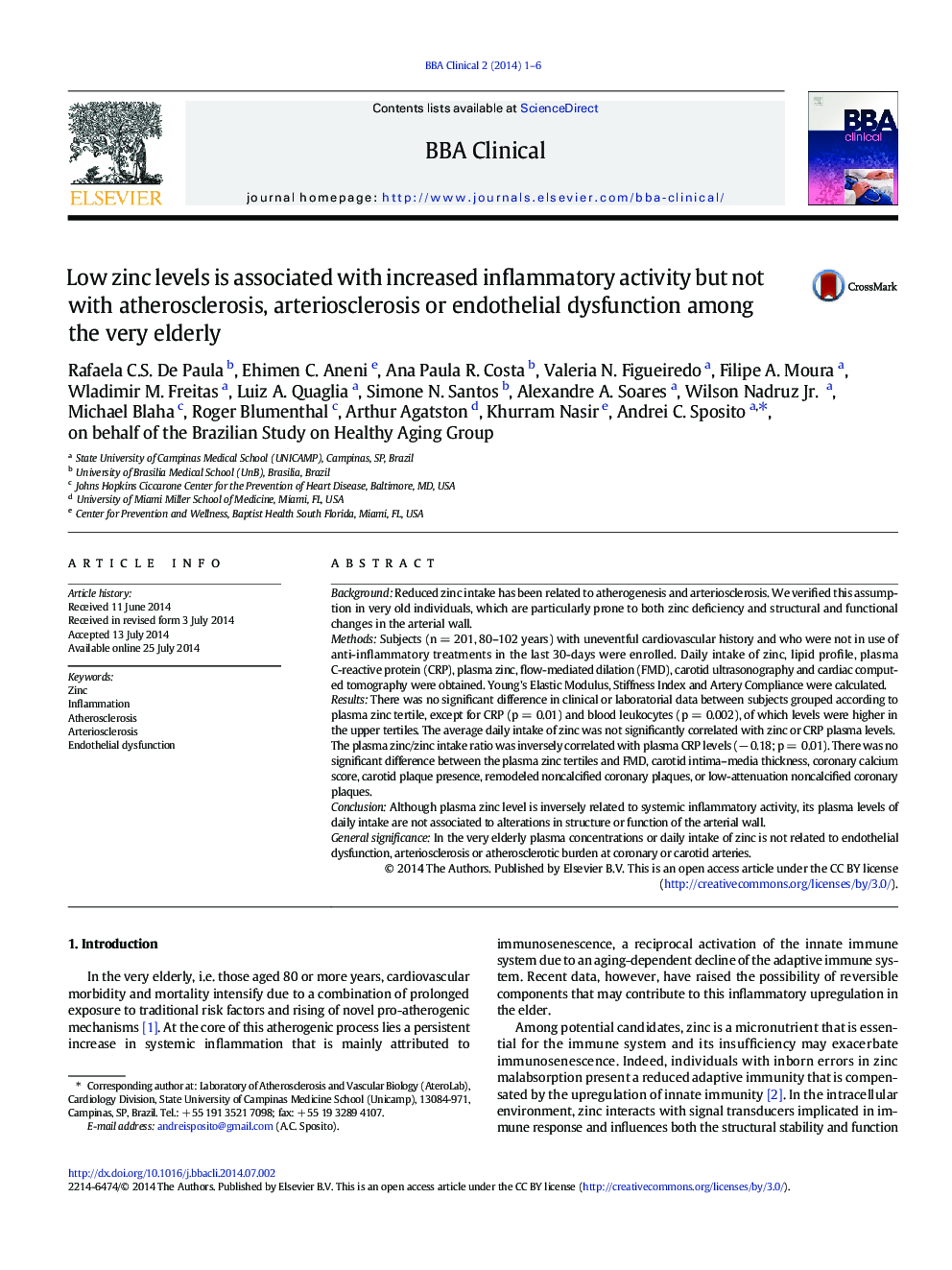| کد مقاله | کد نشریه | سال انتشار | مقاله انگلیسی | نسخه تمام متن |
|---|---|---|---|---|
| 2773211 | 1567900 | 2014 | 6 صفحه PDF | دانلود رایگان |
• Elderly are prone to nutritional deficiency, inflammation, and arterial wall diseases.
• Low zinc intake is related to artery wall diseases via stimulation of inflammatory activity.
• Plasma levels but not daily intake of zinc is related to systemic inflammatory activity.
• Plasma and dietary zinc are not associated to changes in arterial wall function or structure.
BackgroundReduced zinc intake has been related to atherogenesis and arteriosclerosis. We verified this assumption in very old individuals, which are particularly prone to both zinc deficiency and structural and functional changes in the arterial wall.MethodsSubjects (n = 201, 80–102 years) with uneventful cardiovascular history and who were not in use of anti-inflammatory treatments in the last 30-days were enrolled. Daily intake of zinc, lipid profile, plasma C-reactive protein (CRP), plasma zinc, flow-mediated dilation (FMD), carotid ultrasonography and cardiac computed tomography were obtained. Young's Elastic Modulus, Stiffness Index and Artery Compliance were calculated.ResultsThere was no significant difference in clinical or laboratorial data between subjects grouped according to plasma zinc tertile, except for CRP (p = 0.01) and blood leukocytes (p = 0.002), of which levels were higher in the upper tertiles. The average daily intake of zinc was not significantly correlated with zinc or CRP plasma levels.The plasma zinc/zinc intake ratio was inversely correlated with plasma CRP levels (− 0.18; p = 0.01). There was no significant difference between the plasma zinc tertiles and FMD, carotid intima–media thickness, coronary calcium score, carotid plaque presence, remodeled noncalcified coronary plaques, or low-attenuation noncalcified coronary plaques.ConclusionAlthough plasma zinc level is inversely related to systemic inflammatory activity, its plasma levels of daily intake are not associated to alterations in structure or function of the arterial wall.General significanceIn the very elderly plasma concentrations or daily intake of zinc is not related to endothelial dysfunction, arteriosclerosis or atherosclerotic burden at coronary or carotid arteries.
Journal: BBA Clinical - Volume 2, December 2014, Pages 1–6
